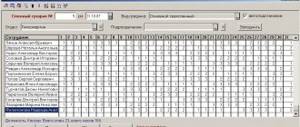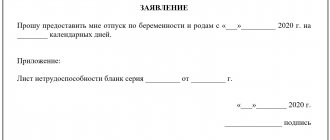Statement of claim for division of personal account
The relevance of information on how to independently draw up a statement of claim for the division of a personal account is associated with the cohabitation of several citizens in the same apartment (house) and the presence of common rights to this housing.
We all know about the obligations to pay for housing and utilities, but not every one of us fulfills them on time. When family members do not wish to contribute to such expenses, no matter for whatever reasons, the dispute can be resolved by going to court. And the specifics of drawing up and filing a claim for the division of a personal account, the nuances of assessing the prospects for a court decision - we will talk about this in this article.
The purpose of filing a claim is to divide the responsibilities for paying for housing maintenance and utilities. Everyone will pay for themselves personally. What is a personal account? This is a payer code intended for making utility payments. This account is an identifier by which the utility provider determines who made the payment and to what address.
By following the recommendations below, filing a claim yourself will not be difficult. You can ask additional questions (if any) to the site’s duty lawyer.
Statement of claim for division of personal account
How to divide personal accounts in a non-privatized apartment
You need to pay for utilities, incur expenses for routine repairs of an apartment building, and pay rent for housing on time. If they do not want to do this, then they can be forced to determine their share of the costs of paying for housing and communal services.
As before, in 2021, a significant basis is required to split a personal account. The Resolution of the Plenum of the Armed Forces of the Russian Federation dated July 2, 2009 on the procedure for using the Housing Code of the Russian Federation by courts considers the possibility of determining the amount of payment for housing expenses by former family members. They can be considered divorced spouses, as well as other relatives (dependents) with whom the employer has ceased to maintain a common household.
Example of a statement of claim for division of a personal account
Statement of claim for division of personal account
According to Art. 210 of the Civil Code of the Russian Federation, the owner bears the burden of maintaining the property he owns. In accordance with Art. 274 of the Civil Code of the Russian Federation, ownership and use of property in shared ownership is carried out by agreement of all its participants, and if agreement is not reached, in the manner established by the court.
In accordance with Art. 158 of the Housing Code of the Russian Federation, the owner of premises in an apartment building is obliged to bear the costs of maintaining the premises belonging to him, as well as to participate in the costs of maintaining common property in the apartment building by paying a fee. We are unable to agree on the procedure and amount of these costs under the agreement.
- Determine the amount and procedure for participation in the maintenance of joint housing and payment of utilities at the address: Moscow, st. Citrusovaya, 423, apt. 999 between Purygina Zoya Nikiforovna and Purygin Pantelei Vasilyevich in equal shares of all costs, each with ½ share.
- Oblige the management company of Domstroy LLC to enter into separate agreements with Purygina Zoya Nikiforovna and Purygin Panteley Vasilievich and issue them separate receipts for payment of utilities and maintenance of the apartment at the address: Moscow, st. Citrusovaya, 423, apt. 999.
- A copy of the statement of claim.
- Receipt of state duty to the court
- A copy of the purchase and sale agreement for the apartment
- A copy of the donation agreement for the apartment
- Certificate of family composition
- Copy of personal account
- Copy of the Certificate of Shared Ownership
- Notice of conclusion of an agreement addressed to the Defendant
12/20/2019 Purygina Z.N.
Sample claim for division of personal account
- Car insurance
- Housing disputes
- Land disputes
- Administrative law
- Participation in shared construction
- Family disputes
- Civil law, Civil Code of the Russian Federation
- Consumer rights Protection
- Labor disputes, pensions
- home
- Statement of claim for division of personal account between owners for payment of housing and communal services
Sample statement of claim for “dividing a personal account” or determining the procedure for paying for housing and communal services
Note:
In the article “Section of a personal account or determining the procedure for paying for housing and communal services,” we provided some comments on emerging issues regarding the “section of a personal account.”
Let's add the following to what was said in the article.
As a rule, demands for “dividing a personal account” are associated with demands for the recovery of funds paid. Indeed, often, until the court determines the procedure for making payments for housing and communal services, the owner makes payments, as they say, both for himself and for non-paying co-owners.
In this case, along with the claims specified in the sample statement of claim below, it is necessary to declare the recovery of unjust enrichment - the amount of payment for housing and communal services paid for the defendants.
For example, the claim below should be supplemented with the following.
Since the defendant is the owner of ½ share in the ownership of the residential premises..., he also bears the burden of maintaining the property in proportion to his share...
In accordance with Part 1 of Art. 1102 of the Civil Code of the Russian Federation, a person who, without the grounds established by law, other legal acts or transaction, acquired or saved property (acquirer) at the expense of another person (victim), is obliged to return to the latter the unjustly acquired or saved property (unjust enrichment).
The defendant, without participating in the costs of maintaining housing and paying for utilities, saved money in the amount of ½ of the money I paid.
Based on the above, I ask the court:
Recommended publications on the topic:
- For a number of articles and comments on the topic, see the review: Debt collection for housing and communal services (rent). Arbitrage practice
Statement of claim for division of personal account between owners for payment of housing and communal services
In ... district court (name of court)
Plaintiff: ... S. (full name, place of residence)
Defendant: ... A. (full name, place of residence)
Defendant: ... (HOA, housing cooperative, management organization... full name of the management company, location)
Statement of claim to determine the procedure for paying housing and communal services)
I am the owner of 1/2 share in the right to residential premises - an apartment located at the address: ..., st. ..., d...
The second owner of ½ share in the right is A.
A. does not pay the provided housing and utility costs. I am forced to pay for utilities, maintenance and repair of common property in full.
In accordance with Art. 249 of the Civil Code of the Russian Federation, each participant in shared ownership is obliged, in proportion to his share, to participate in the payment of taxes, fees and other payments on common property, as well as in the costs of its maintenance and preservation.
Part 2 of Article 154 of the Housing Code of the Russian Federation stipulates that payment for residential premises and utilities for the owner of premises in an apartment building includes: payment for the maintenance of residential premises, which includes fees for services, work on managing the apartment building, for maintenance and current repair of common property in an apartment building, for cold water, hot water, electrical energy, thermal energy consumed during the maintenance of common property in an apartment building; contribution for major repairs; utility fees.
By virtue of Part 4 of Article 154 of the Housing Code of the Russian Federation, payments for utility services include payments for hot water supply, cold water supply, sewerage, electricity supply, gas supply (including supplies of household gas in cylinders), heating (heat supply, including supplies of solid fuel for presence of stove heating).
According to Art. 153 of the Housing Code of the Russian Federation, citizens and organizations are obliged to pay for residential premises and utilities on time and in full.
In accordance with Part 1 of Article 158 of the Housing Code of the Russian Federation, the owner of premises in an apartment building is obliged to bear the costs of maintaining the premises belonging to him, as well as to participate in the costs of maintaining common property in an apartment building in proportion to his share in the right of common ownership of this property by paying a fee for maintenance of residential premises, contributions for major repairs.
According to the general rule of Art. 247 of the Civil Code of the Russian Federation, ownership and use of property in shared ownership is carried out by agreement of all its participants, and if agreement is not reached, in the manner established by the court.
Within the meaning of the above provisions of the law, the shared owner has the right to pay for residential premises and utilities in proportion to his share in ownership in accordance with an agreement concluded with persons providing services, on the basis of separate payment documents, and in the absence of the consent of the remaining shared owners, he has the right to demand the establishment the court separated the order of payment for housing and utilities between the owners.
Since an agreement has not been reached between me and the defendant, as participants in shared ownership, on the issue of determining the procedure for participation in payment for residential premises and utilities, it is necessary to establish a separate payment procedure in proportion to the size of the share of each participant in shared ownership in the ownership of the residential premises.
Based on the above, I ask the court:
determine the procedure for payment for residential premises and utilities between A. and S., who are participants in the common shared ownership of the apartment at the address: ..., st. ..., d. ..., apt. No. ... in proportion to their shares in the right of common shared ownership of the specified apartment as follows:
for S. - 1/2 share, for A. - ½ share;
oblige ... (the management organization) to conclude a separate agreement with S. for the payment of living quarters and utilities for the apartment at the address: ..., st. ..., d. ..., apt. No....
oblige ... (the management organization) to accrue payment for residential premises and utilities to S. (plaintiff) in the amount of 1/2 share, A. (defendant) - in the amount of 1/2 share, with the issuance of separate payment documents for payment of residential premises and utilities services.
1. A copy of the statement of claim; 2. A document confirming payment of the state fee; 3. Documents confirming ownership of the apartment (certificate of state registration of ownership of residential premises, registration certificate, extract from the unified state register of rights to real estate and transactions with it); 4. A copy of the personal account issued by the management company.
Who and when can file a claim for division of a personal account?
Not all persons living in the apartment can file such a claim. A request to split a personal account can be submitted by:
- owners of housing that is in their shared ownership (therefore, if the property is in common joint ownership, first enter into an agreement to determine shares or an agreement to allocate a share (or file a claim with the court to determine the shares of the spouses in the apartment)
- tenants of housing under a rental agreement and members of their families.
When the procedure and amount of costs for housing and utilities are agreed upon voluntarily by the parties, it is necessary to send an agreement on the division of the personal account to the management company.
In situations where the management company left such an application without consideration or refused, and also if the procedure and amount of costs for paying for housing and utilities could not be determined independently, it is necessary to submit a statement of claim for division of the personal account to the district (city) court at the location controversial housing.
How to divide a personal account in a privatized apartment: options
Such a separation is possible if the spouses are divorced and live in the same living space. They must pay for home repairs and utilities. Such grounds may be for dividing the account: at the request of the ex-spouse and at the request of the tenant under the agreement for the right to use the living space.
We recommend reading: Muscovite card social benefits
In some cases, you have to go to court for division, and you must be the owner of a share of the property. To resolve this issue, you need to draw up a statement of claim to recognize the right of ownership and pay the state fee. Its size will depend on the size of the share ownership in the apartment.
Features of dispute resolution regarding personal accounts
In the course of resolving a dispute about dividing the bill between co-owners of housing, the court determines the amount of payment for utility services based on the number of registered residents. The court will determine which citizens are willing to pay for themselves and their family members, and who should be allocated a separate personal account. If there are no utility consumption meters, then the calculation is made based on the area of housing.
When resolving disagreements between a tenant and his family members, the court will set the amount of payment based on the number of residents who have the right to use the housing. Usually the amount of payment is set in shares.
Features of the personal accounts section
Most often, this procedure is used for municipal and privatized apartments. Let's take a closer look at the main design nuances for each of the apartments.
In the municipal
The division of personal numbers of municipal housing can be initiated by both the user of the property and the landlord. The peculiarity of the procedure is as follows:
- the owner of the property (the municipality) must be notified about the procedure;
- it is allowed to conclude a rental agreement on special conditions that define the boundaries of responsibility for the utility burden and cancel the previous one (the consequences remain the same as after the division of personal accounts).
In a privatized
If it is necessary to share personal numbers in a privatized apartment, it is better for residents to draw up an agreement and independently determine the size of the shares to be paid for the consumption of services in one territory.
When such agreement is unattainable, then upon application through the court the payment amounts will be determined, but the number will remain the same.
Dividing the account in a privatized apartment is possible only in cases where the premises themselves can be divided in kind - by separating premises, each of which will have its own entrance and technical support (plumbing, heating system, sewerage, etc.).
In a shared apartment
If the living space is in shared ownership, then the burden of utility bills is divided in proportion to the assigned shares.
Splitting into two personal accounts is permissible only after signing and notarization of an agreement defining the share of each.
Difficulties arise when it comes to a shared apartment between spouses, provoked by the following points:
- the ex-husband or ex-wife has not previously recorded the size of the shares of each spouse (then they are recognized as equal);
- if there is information about the shares for each spouse in the title documents, you should provide an extract from the register of rights;
- failure to reach agreement on the division is decided only by the court;
- the concept of joint ownership does not apply to cases of non-privatized housing.
Court decision on a claim for account division
It should be understood that the division of a personal account leads to the need to independently fulfill the obligations of making payments. However, such a situation will not affect the terms of the residential rental agreement. The apartment will not be converted into a communal one. It’s just that from the moment the decision comes into force, two or more receipts will be received for one apartment. In case of debt, the management company will not sue all residents, but only specific debtors.
This is important to know: Writing off debt after the statute of limitations expires
It should be taken into account that utility bills cannot be divided. Only obligations for the future can be divided. For the past time, you can collect part of the debt by filing a claim in court for collection by way of recourse.
So, after the decision on the claim for division of the personal account is made and it enters into legal force (appeal), the management company will be obliged to enter into separate agreements with the co-owners (tenants) of the housing and payment will be made in accordance with the procedure established by such a decision.
Clarifying questions on the topic
How can I write an application to the court about dividing a personal account with my son? He is registered, but has not lived in the apartment for 4 years and does not pay for heating or renting an apartment. I paid alone for 4 years. We have a large debt that I cannot pay. I want the management company and heat supply to split the bills for me, as well as for renting housing, and recalculate the different shares for me.
For the division of personal accounts, fill out a statement of claim using this sample. You can split bills just to pay for a future date. Debts from the past are not divided this way.
How to write a statement of claim for division of accounts if I was the only owner of the apartment?
Describe in more detail with whom you are going to share personal accounts and on what grounds?
You wrote that past debts for housing and communal services are not divided. How then are they divided? Apartment in shares for 4 people. There are two personal accounts. 3 people are registered. (owners). Another one does not live together. The debt is 240 thousand. Should they be held jointly and severally liable?
The amount of debt can be divided between debtors only with the consent of the creditor, the recipient of the payments. As a rule, the management company does not agree to such a division, since it is more profitable to collect the debt from everyone jointly. Before the division of personal accounts, the debt must be paid by everyone jointly. After the division, everyone pays their own bill. A citizen who pays off the general debt at his own expense has the right to then recover from everyone else the amount that falls to their share.
From birth she was registered in a municipal apartment, but did not live there. I recently turned 18 and they tried to evict me through the courts. The court rejected it. I want to apply for separation of accounts. Besides me, nine more people are registered there, including small children.
You can submit an application for division of personal accounts. Please note that in your case you need to move into and live in the apartment, since failure to live after reaching the age of majority may serve as grounds for deprivation of the rights to use this residential premises.
I am filing a claim for division of my personal account. The owners of the property are me (1/4 of the apartment), my ex-husband (1/4) and two minor children (1/4 each). In the statement of claim, I am the plaintiff, the ex-husband is the defendant. How can I register my children, the same owners, will they be third parties or interested parties? I am filing to split personal accounts in half with my ex-husband.
In this case, you will need to take into account the children’s shares in someone’s personal accounts. Typically, child support recipients include the children's shares in their accounts. That is, they ask to divide the personal account by 3/4 to 1/4.
My ex-husband shares ownership of the apartment; he does not live in the apartment. The receipt for solid household waste comes for 2 people, I pay my half, the rest is debt. How to split a personal account? Application form and required documents.
You can use this image. You will need to attach documents for the apartment and a receipt.
we are three owners: 2/4 for me and 1/4 each for my sister and her adult son, there is a mother, but she has no property, how can I draw up an application for dividing the personal account between the owners, but include my mother in my personal account check
You need to ask to split the personal account by 2, between you and your sister. Include your mother in your personal account, and her son in your sister’s account.
How to correctly write a statement of claim to the court about the division of personal accounts?
Take the example provided as a basis. claim and describe your situation.
Hello! The court determined the procedure for paying housing and communal services between me and my ex-husband. The court does not divide the personal account now (as the judge explained to me). I am the owner and this account is, naturally, mine. One general receipt arrives. Is it still possible to split the personal account so that there are two receipts (for me and my ex-husband)? Because The management company cannot collect debts for housing and communal services from the ex-spouse, and they only collect from me. And how to correctly write a statement of claim to the court for the division of housing and communal services debt between spouses (necessary for an agreement on the amount of debt payment with the management company for a rent subsidy)?
Judicial practice is different in all regions. Perhaps the judge's position has something to do with this. Typically, the court orders the amount and procedure for participation in the maintenance of housing and payment of utilities and obliges the management company to enter into separate agreements and issue separate receipts to former family members. Same as stated in our example claim. The Supreme Court has had and continues to have the same practice. In its decision, the court had to justify its refusal to satisfy the claims for division of personal accounts. You have the right to appeal this refusal. Debts from the past cannot be divided. They are paid jointly (that is, from whichever debtor is possible). you have the right to recover half of the amount paid from your ex-spouse by way of recourse.
Good afternoon. But what if the second owner of the 12th share of the apartment deliberately does not receive a certificate of inheritance. It turns out that you need to share your personal account with the deceased?
This is important to know: Clarification of claims in the simplified arbitration process
The heir's right of ownership arises from the moment the inheritance is opened. If he accepted the inheritance, then the date of receipt of the certificate does not matter. It is clear that in this case it will be necessary to further prove his rights to the apartment.
Divorce is not a reason not to pay
What to do if family members of the tenant who entered into a social rental agreement do not want to pay housing and communal services bills? Often, such a situation arises due to the dissolution of a marriage between spouses who continue to live in the same living space and are still considered tenants (according to the old legislation, tenants) in accordance with the concluded agreement.
READ How to challenge a statement of claim for debt collection on a loan: objection to the statement of claim, how to appeal the statement of claim, petition for cancellation
Moreover, all persons living together in the same apartment, in accordance with the social tenancy agreement, have equal responsibilities and rights, whether they are family members or no longer. All former family members of the main tenant who continue to live in the apartment are independently responsible for paying for and maintaining the apartment.
Cohabitation
The following may live in the same residential premises with equal rights:
- several owners who have one or another share in the common ownership of residential premises;
- several persons living together with the owner, although not possessing the right of ownership, but enjoying the right of residence.
Regardless of the number of persons who have ownership rights to a share in a residential premises, or the number of persons using this premises, provided that the personal account is not divided between them, receipts for payment of utilities will be received as a whole for the apartment or house.
The fact is that for utility providers it does not matter how many people live in a residential building, especially if meters are installed in it. Likewise, for housing and communal services, it does not matter whether residents will distribute expenses among themselves or whether one person will pay for everyone.
A fair division of utility bills is possible both peacefully and in court.
In the peaceful method, co-owners or cohabitants enter into written or oral agreements among themselves, distributing utility and other payments depending on the share in the property or depending on the square footage of the room occupied in the residential premises.
If it is not possible to conclude an agreement, there is only one way out - to go to court with a claim for division of the personal account.
What to pay attention to
Quite often, such claims arise in connection with the dissolution of a marriage, when the former spouses remain living in the same residential premises. As a rule, in such a situation, housing is jointly owned by the spouses. Therefore, the court will not be able to divide personal accounts and distribute the burden of expenses without determining the shares in ownership of the apartment. However, these claims can be made by one of the former spouses in one statement of claim.
It is impossible to split bills if the living space consists of one room.
Having satisfied your requirements, the court will determine your share in paying for utility services and oblige the operating organization to issue you separate invoices for these services. But when paying using metering devices, the court will not be able to correctly determine which of the residents uses more water, gas, electricity, etc. Therefore, the costs will most likely be distributed in proportion to the number of residents.
This is interesting: Conversion of a non-residential building into a residential building in 2021
Agreement
There are two types of agreements regarding the division of payments, namely:
- a written or oral agreement on the division of contributions to the total payment;
- a written agreement on the division of a personal account.
The first type of agreement is a simple distribution of the total payment between the cohabitants.
The second type of agreement is a document that gives rise to certain legal consequences. Of course, the cohabitants themselves cannot divide the personal account; they can only express their desire to share it. The written agreement should be taken to the management company and an application for division of the personal account should be written. If the management company refuses to partition, you will need to go to court with a claim to oblige the management company to divide the personal account.
Let's pay attention to this point. In a claim for division of a personal account, the court will make a division as a result of a legal dispute between cohabitants.
In a claim about the obligation of the Criminal Code to make a division, the court in its decision will not divide the account, but will instruct the Criminal Code to satisfy the application of the cohabitants.
Division of drugs through the court
However, neighbors are not always able to reach an agreement with each other peacefully. Especially if one of the residents leads an unreliable lifestyle. In this case, you will need to submit an application to the judicial authority. Such a need may also arise when the housing company refuses to allocate a separate account due to reluctance to deal with unnecessary hassle.
To open a claim, the applicant submits the following package of documents:
- Identity card in the form of your passport.
- Technical passport of real estate.
- Certificate of ownership or extract from Rosreestr.
- Personal account.
- Document from the house register about registered residents (form 9).
- Receipt for payment of state duty.
- Statement of claim.
These cases are non-property, therefore they are subject to the jurisdiction of the magistrate, who is located at the place of registration of the immovable property. The state duty in 2021 is a fixed amount of 300 rubles.
The statement of claim for the division of drugs in a privatized apartment contains the following information:
- The name of the body where the claim is filed, indicating the full name of the magistrate.
- Information about the applicant - full name, passport details, registration address, phone number.
- Information about co-owners, for whom personal accounts also need to be divided.
- Information about the residential property, the shares of each co-owner.
- Description of the reason for going to court.
- Date of compilation and signature.
Download the Statement of Claim for the division of a personal account, determination of shares in payment for housing maintenance and utilities
It is not necessary for all residents to be present at the hearing. It is sufficient if only the applicant is present in the courtroom. The meeting is scheduled 30 days after submitting documents to the court secretariat. The plaintiff receives a decision in his hands 10 days after the meeting.
As a rule, the court decides to divide the drug depending on the size of the share of each owner. However, this can be influenced. Let’s assume that a citizen owns part of an apartment, but lives and is registered at a different address. If he proves in court that he pays utilities at a different address, then the amount of housing and communal services in the shared apartment may be reduced for him.
One of the most common questions: is it possible to issue an individual LP if the apartment has a debt for utility bills? The mere existence of a debt is not an obstacle to the division procedure. However, the court may decide to distribute the debt among all co-owners. For their part, if the debt arose due to one person leading an unreliable lifestyle, the co-owners can apply to the court and collect the debts from him.
After the court has made a decision, citizens need to contact the management company. This can be done 30 days after the decision is made. It is after this period that it comes into force, and other parties have a 10-day opportunity to file an appeal. Now the Criminal Code no longer has the right to refuse to register individual accounts, because there is a court order for this.
USEFUL INFORMATION: Increment of inherited shares: legal grounds and reasons for this procedure
A personal account section can be a convenient solution for many people who, by chance, find themselves sharing the same living space. This procedure will save many families from conflicts and help them cope with the responsibilities of managing and maintaining real estate.
Going to court
Utility payments and payments for house maintenance are calculated per unit of residential premises, that is, per apartment or house. To calculate payments for each residential premises, a so-called personal account has been established, in which the residents or co-owners of the residential premises are entered. Accordingly, each personal account receives one receipt for each type of payment.
The division of the personal account will thus lead to the fact that two personal accounts will be opened per unit of residential premises (apartment, room or house), and utility bills, as a result, will be divided.
It is this division that is the purpose of the type of claim under consideration. As a result of the division of the personal account, each of the co-owners will pay their part of utility and other payments according to receipts that will come in their name.
Claims for the division of a personal account belong to the category of controversial proceedings, that is, implying the participation of the plaintiff and the defendant in the case. The plaintiff may be:
- owners who have a share in common shared property;
- employers under social tenancy agreements and members of their families.
That is, co-owners who own residential premises as common property must first decide on their shares, and only after that decide on the division of the personal account. Shares can be determined or allocated either by agreement of the co-owners, or by filing a lawsuit in court to determine (allocate) the shares.
Accordingly, either a co-owner in common shared ownership, or a tenant or any of his family members included in the personal account of the residential premises can act as defendants.
Sample statement of claim to court for division of utility bills
A statement of claim for the division of personal accounts is a document that will help achieve the distribution of payments for electricity, gas, water, garbage and major repairs between the owners or tenants of the living space. It will be needed if persons living in the same apartment or house cannot resolve the issue of separate payment for utilities amicably. Such disputes most often arise between ex-spouses who continue to live in a shared apartment after a divorce, between parents and adult children living with them, and between owners who own shares in the apartment. We will tell you how to write a statement of claim correctly, where it should be filed and how much it will cost to go to court.
This is important to know: Section of a mortgage apartment with maternity capital








